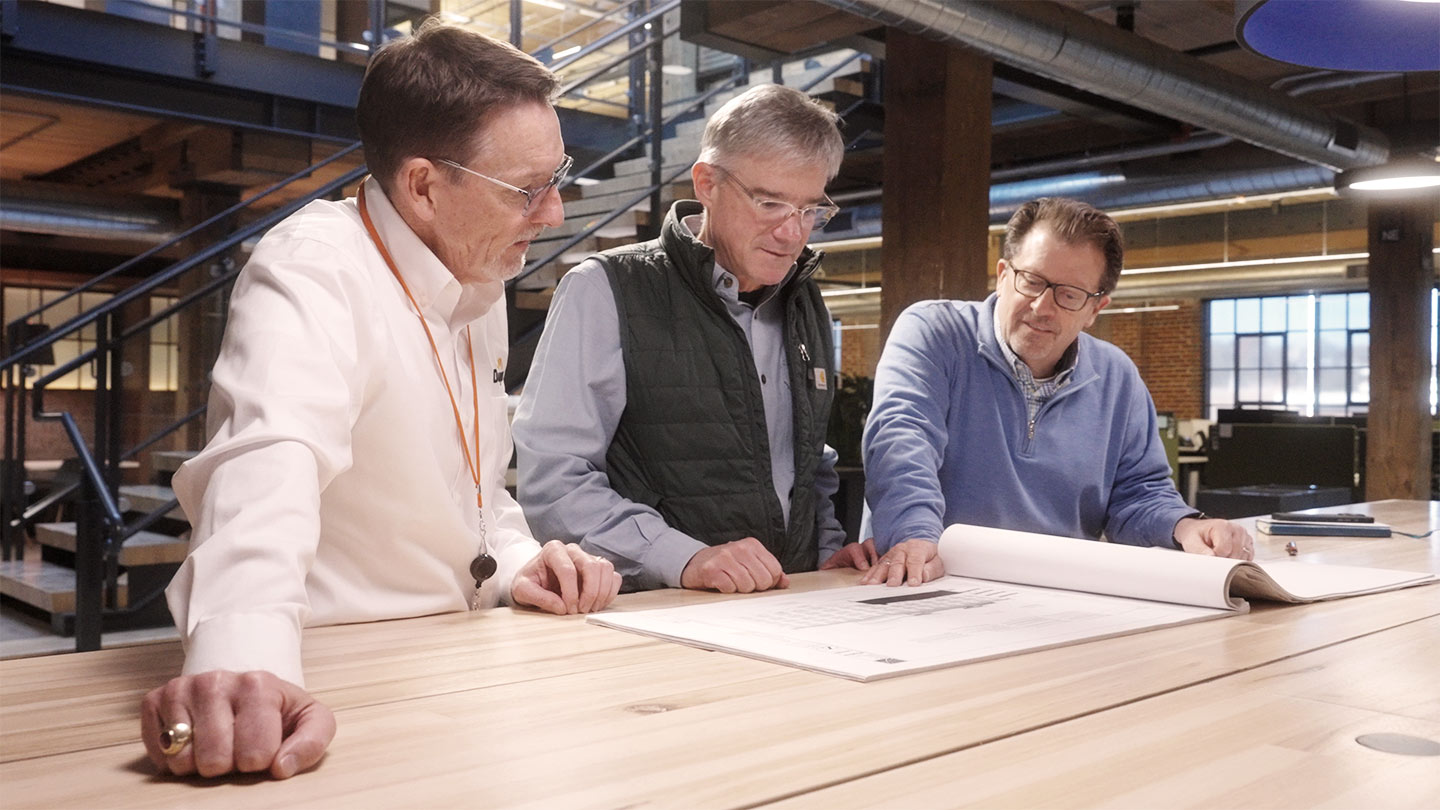
Community Development Financial Institutions (CDFIs) provided development services to 4.6 million clients in 2020, according to the CDFI Annual Certification and Data Collection Report.
CDFIs couldn’t do it without their leaders, who must not only advance the organization’s mission, but also its growth and financial success. These leaders must also wear multiple hats as they mobilize money, people and resources by:
- Fundraising
- Championing vulnerable communities
- Advocating and shaping public policy
- Driving public-private relationships
- Recruiting and retaining talent
We talked to seven leaders of CDFIs across the country to learn about their career paths and what motivates their work helping low- to moderate-income communities.
29
AVERAGE YEARS OF COMMUNITY DEVELOPMENT EXPERIENCE
200+
YEARS OF COMBINED INDUSTRY EXPERIENCE
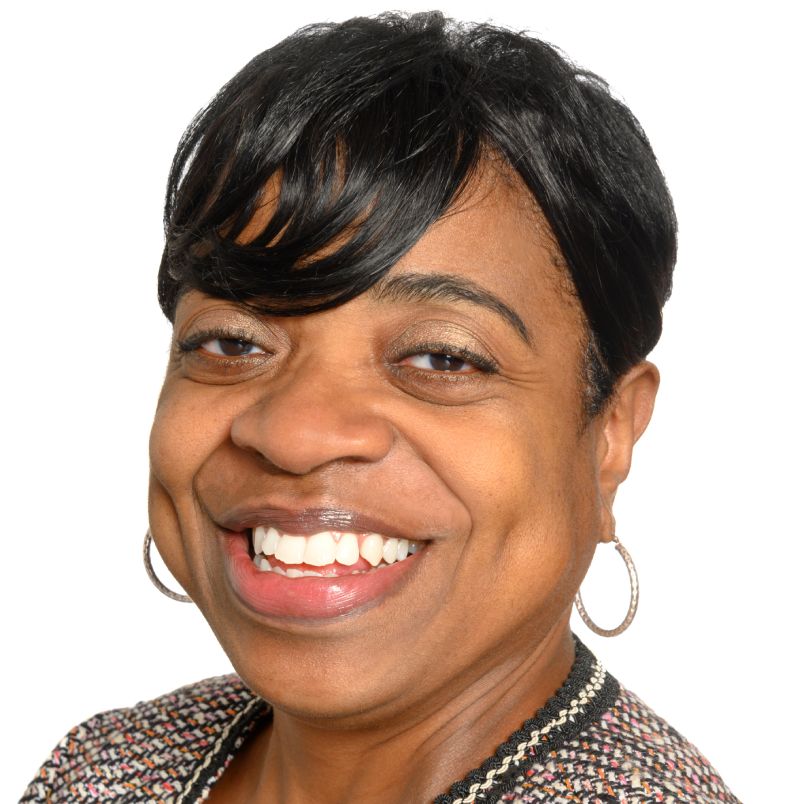
Who is your mentor? I owe Margaret Cheap and Doris Koo for showing me what fearlessness looks like and for ensuring that I had an equal chance to succeed. I worked for Margaret at National Cooperative Bank before she went on to lead NCB Development Corporation, now Capital Impact Partners. Doris was CEO of Enterprise Community Partners where I led its CDFI arm before currently heading its Capital division.
What qualities do you look for in team members? I want all my team members to be smarter than I am and have the confidence to challenge my thinking and approach.
Why did you choose a career in community development? Like many, I did not know this field existed early in my career. I was just looking for a job that would allow me to move back to D.C., and I found one as an analyst for National Cooperative Bank.
I knew this would be my life’s work after my first site visit to a community health center in Indianapolis. It was the saddest place I had ever been in my then 26 years. I thought about all the effort it took the team to get a $500,000 loan relative to what I had seen as an analyst working at a regional bank in Philadelphia. I decided I could apply what I learned at the bank to get capital to businesses that were day-in and day-out having an impact on people that looked like me.
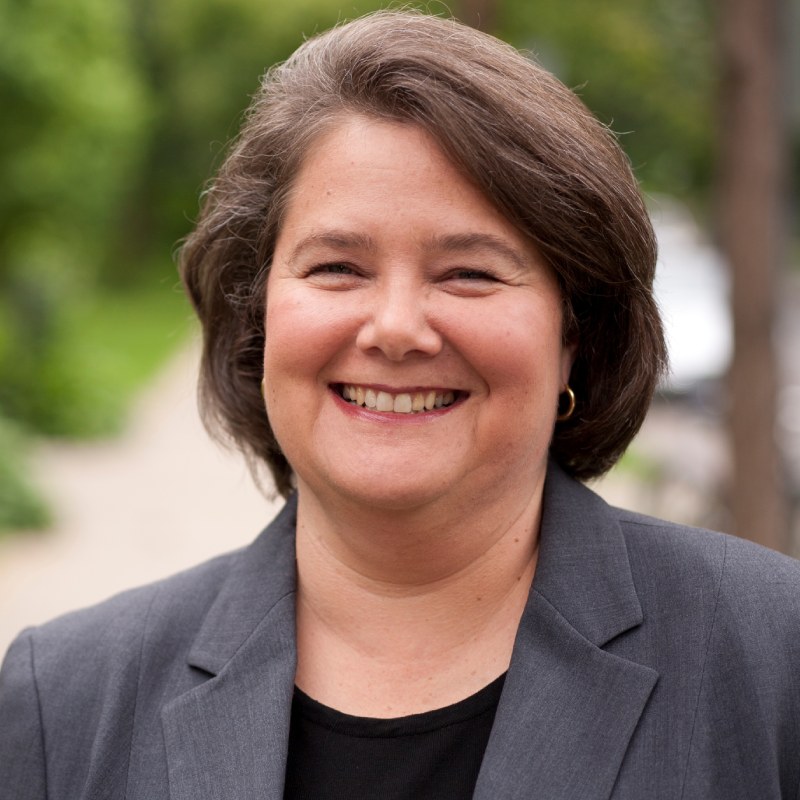
What qualities do you look for in team members? My team members are resilient and inquisitive, and they’re problem solvers. It’s also important my staff and board members are kind. We use this mantra: one CSH. It’s not that we’re all the same. That’s what’s special—we’re not the same. But it’s to connote that we have each other’s back.
Describe the biggest challenge in your career. How did you overcome it?Leading during COVID-19 was one of the biggest challenges in my career.
The other challenge was in the ‘90s when I came out as a gay woman. I was married at the time; we were both in fairly public positions and our lives were interwoven. Coming out so publicly was scary. When I made that decision, I needed to be comfortable with how I did it. I was straightforward and didn’t hide it with my colleagues or friends. I just said, “This is who I am.” It was difficult at the time, but everyone was supportive.
Why did you join CSH? CSH did—and does—such a good job of not only making the moral case for affordable housing, but also making the business case. At the time I was a government official, and understanding the story of how affordable housing was changing lives and the cost savings associated with supportive housing was powerful.
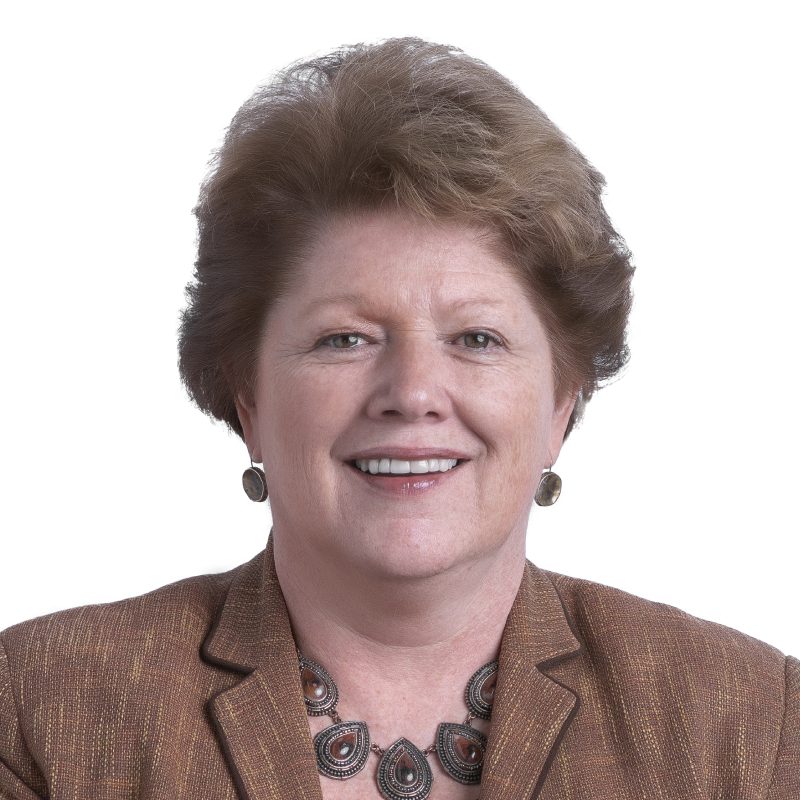
Who is your mentor? Bruce Martin from JPMorgan Chase was one of my most important mentors. He financed one of my first large-scale projects as a developer: Michigan Place in Chicago’s Bronzeville neighborhood. Bruce helped me structure this project financially and keep my eye on its progress. The project made a big difference in the neighborhood.
What qualities do you look for in team members? I look for people who want to be excellent at what they do while respecting the talents of their colleagues.
Describe the biggest challenge in your career. How did you overcome it?Without question, it would be the harsh market downturns that affected my work: the foreclosure crisis, the pandemic, the Midwestern recessions that created the Rust Belt, the savings and loan crisis. Each demanded rethinking and new product creation that was slow and painful at the beginning but made a big difference. For example, I led the charge at Mercy Housing in Chicago at creating a single-family foreclosure platform that was instrumental in getting $169 million in Neighborhood Stabilization Dollars into 22 neighborhoods to rehab single-family and small multifamily buildings. The IT platform was also sold to 12 other cities to help them efficiently invest $1.1 billion to support the recovery efforts.
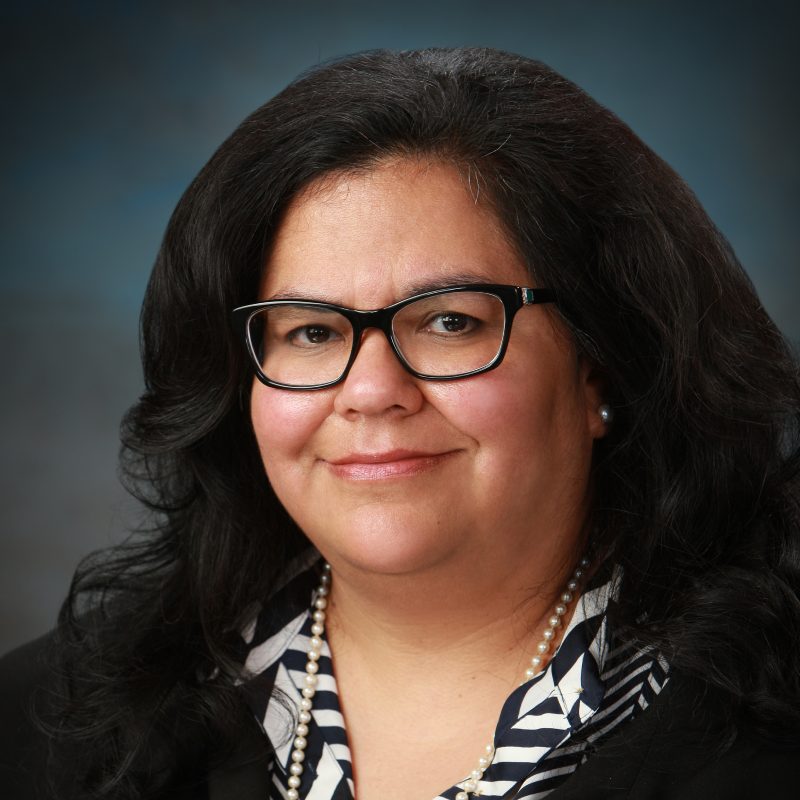
Who is your mentor? I have a nucleus of mentors, including Tommy Espinoza, RDF’s President and CEO, and Mark Van Brunt, RDF’s Executive Vice President, both who founded RDF. It’s amazing to work with these two men who thought bigger than themselves and said, “We don’t have to march to the tune of everybody else.”
I also admire Petra Falcon, who runs Promise Arizona. She leads with such love and compassion and selflessness. I think mentors really lead by example.
What qualities do you look for in team members? Servant leadership. They’re here because they want to be here, because they have a calling or vocation to serve. If you’ve got that, you can learn just about any area of the business. We also look for resilient people who have fallen but bettered themselves and others to get back up.
Why did you choose a career in community development? It sounds corny, but I always knew I wanted to help people. While in law school, I did my second-year internship at RDF and fell in love. I learned about financial analysis, underwriting and New Markets Tax Credit from a team that believed in me. Learning the industry from the ground up was invaluable. I couldn’t have done it any other way.
The women each described their leadership style differently: collaborative, inclusive, transformational. Time and again, however, the leaders mentioned their passion for community development. They said employees could learn the business, but first they needed passion.
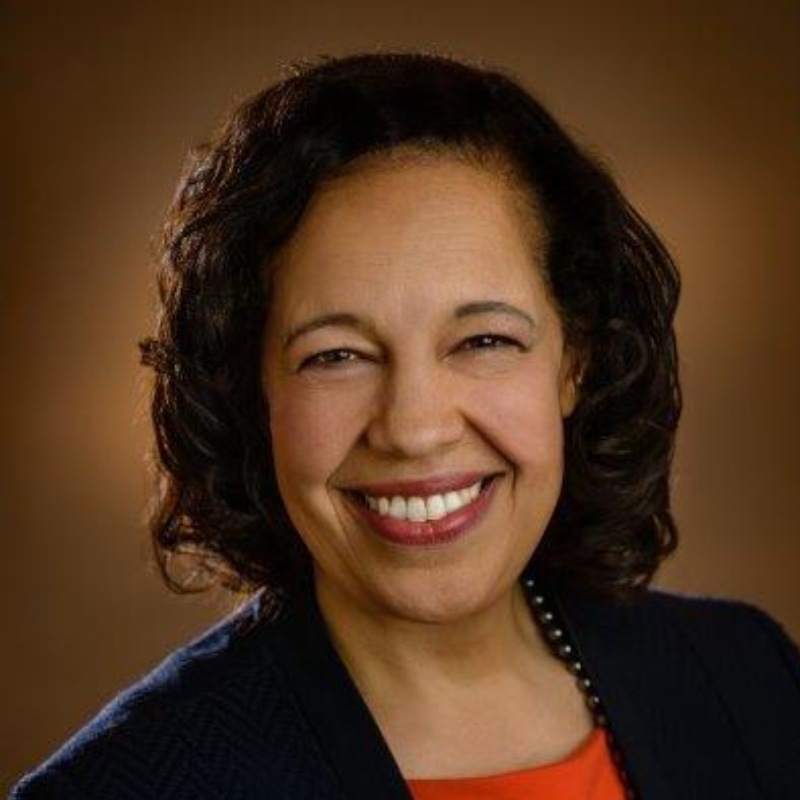
What qualities do you look for in team members? Team members are fearless advocates in our industry’s fight for capital for low-income communities. As an organization, OFN values smart, curious, creative people who are collaborative, humble and willing to lean into all areas of our work.
Why did you choose a career in community development? At first, I thought I’d go into international development. My father was from Ghana. As the daughter of an immigrant, I believed that I could be a bridge between resources and communities in need. I started in banking at Citi, where I learned deeply how financial markets drive economic development. But commercial banking wasn’t my calling. I left for the Ford Foundation, where I started in rural community economic development. During this time, I met the founders and leaders in community development—I found my purpose.
Describe the biggest challenge or setback in your career. How did you overcome it? By far, the biggest challenge of my career has been the pandemic. It threatened to erase the progress CDFIs have made over the past 40 years. The industry overcame this threat by leaning in—CDFIs supported each other, sharing resources and ideas to help small businesses and nonprofits survive the economic impact of the pandemic. CDFIs were also pivotal in working with the federal government to get Paycheck Protection Program loans out to the smallest, hardest to reach minority- and women-owned businesses.
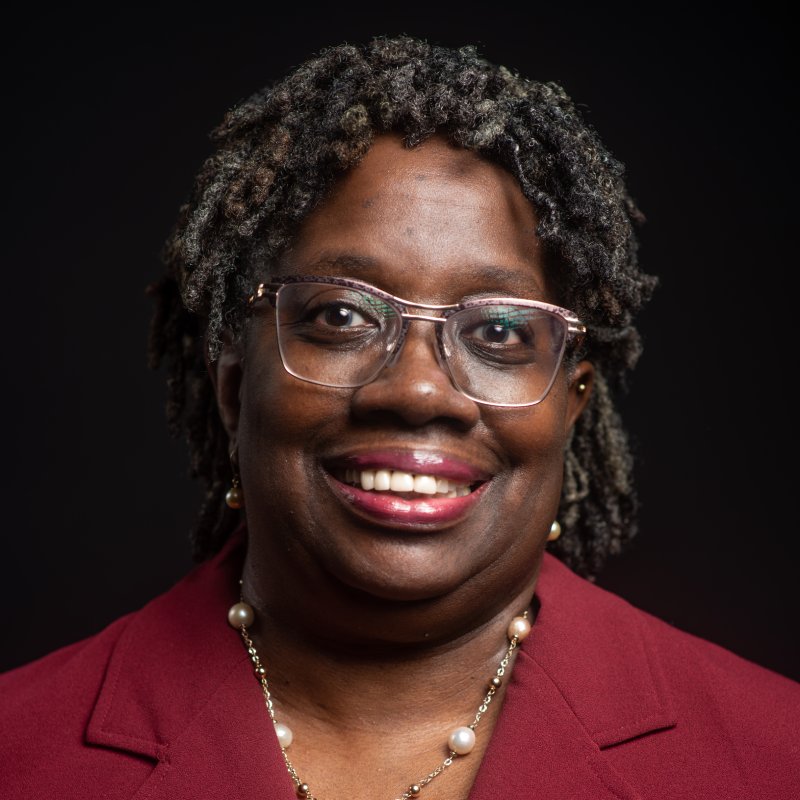
Describe the biggest challenge or setback in your career. How did you overcome it? The “community development” part of this industry can be inclusive and welcoming, but the “finance” part does not always present the easiest road for women, women of color especially. The seat at the table is not always equitable. Sometimes you have to face more roadblocks than you should. But that doesn’t have to rule how you progress. Women have made significant advances as leaders across the industry, and I am proud to be part of that change for the many talented women I work with inside and outside of LISC.
Why did you choose a career in community development? It’s in my blood. My parents are businesspeople; they had a restaurant. They had a passion for community. They instilled that focus in me. My father and I used to love to talk about politics, too. My career is sort of the politics of community.
Why did you join LISC? The main thing was LISC’s comprehensive community development agenda. By that time in my career, I understood the strength of financial investment in community, so to be able to play a role in that was a big part of the attraction, too.
I had no idea I would be here 20 years later. I’ve been able to grow across the company—that’s made the difference. Being in the role of president, I have the opportunity to forge a new way of carrying out our work and reaching communities. The future of community development will define how well communities stay affordable and welcoming to a range of people.
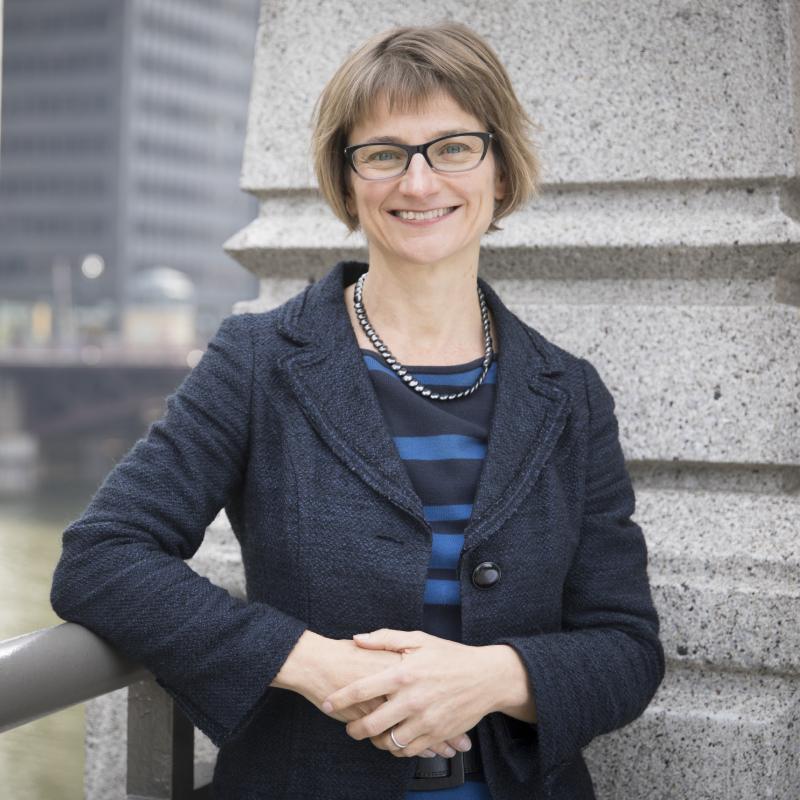
Who is your mentor? Everyone I meet is a mentor in some way. Some people lead with their intellect. Some people lead with their charisma. Some people lead with their hearts. You’re always going to learn something from each of them.
I also admire my dog. He’s delighted with every dog and person he sees on a walk, and he tries to help us. What better way to be than just happy with where you’re at and helping people?
What qualities do you look for in team members? Our borrowers are entrepreneurs—so a lot of them are small and scrappy. That entrepreneurial spirit is in our staff, who are collaborative and passionate about the work.
Describe the biggest challenge in your career and how you overcame it. Starting something from nothing. I took on a brand-new position on a new initiative. My job was to understand the government assisted housing portfolio in Cook County, Illinois, and bring the federal, state, county and city government housing agencies together to get all their data in one place and use the data to identify at- risk properties. The initiative was off the ground in 2008, and that group has been meeting every couple of months since.



